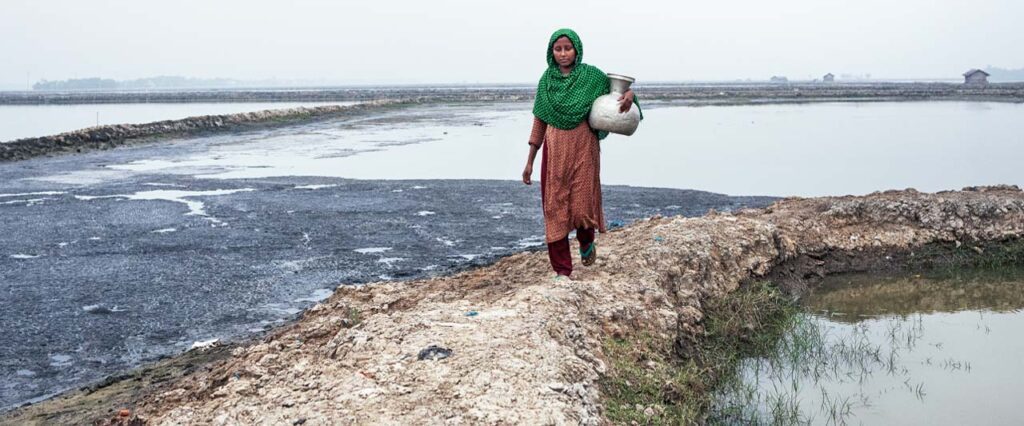In Mozambique, interview participants explained that women tend to be the ones primarily responsible for farming and food production. As a result, they are disproportionately impacted by devastation to the agricultural sector. The most fertile farmland also tends to be in the highest-risk areas for extreme weather, called “risk zones.” Resettlement neighborhoods set up by the government are in “safe zones” not ideal for farming, with few alternative economic opportunities nearby. Resettlement neighborhoods are primarily inhabited by women and children, while men commonly migrate to cities or neighboring countries in search of work.
As a result, many women and their children in the communities we studied in Mozambique lead an unstable, semi-nomadic lifestyle, frequently migrating between their farmland and resettlement neighborhoods. Mothers either bring their children with them, which interrupts their education, or else leave them behind at the resettlement centers for extended periods of time. Some women have decided to remain permanently on their farms in risk zones to avoid constant migration.
In Bangladesh, a central theme interview participants identified was that women lack opportunities for paid work outside of the home due to cultural norms around their role as caregivers and household workers. Climate-induced migration leaves many women to care for their families alone. Women who become heads of household in this way—in addition to unmarried, widowed, or divorced women—are particularly vulnerable to violence and poverty. They described resorting to jobs that put their reproductive health at risk—such as fishing waist-deep in polluted waters and transactional sex—to feed their children and save money for future disasters.

